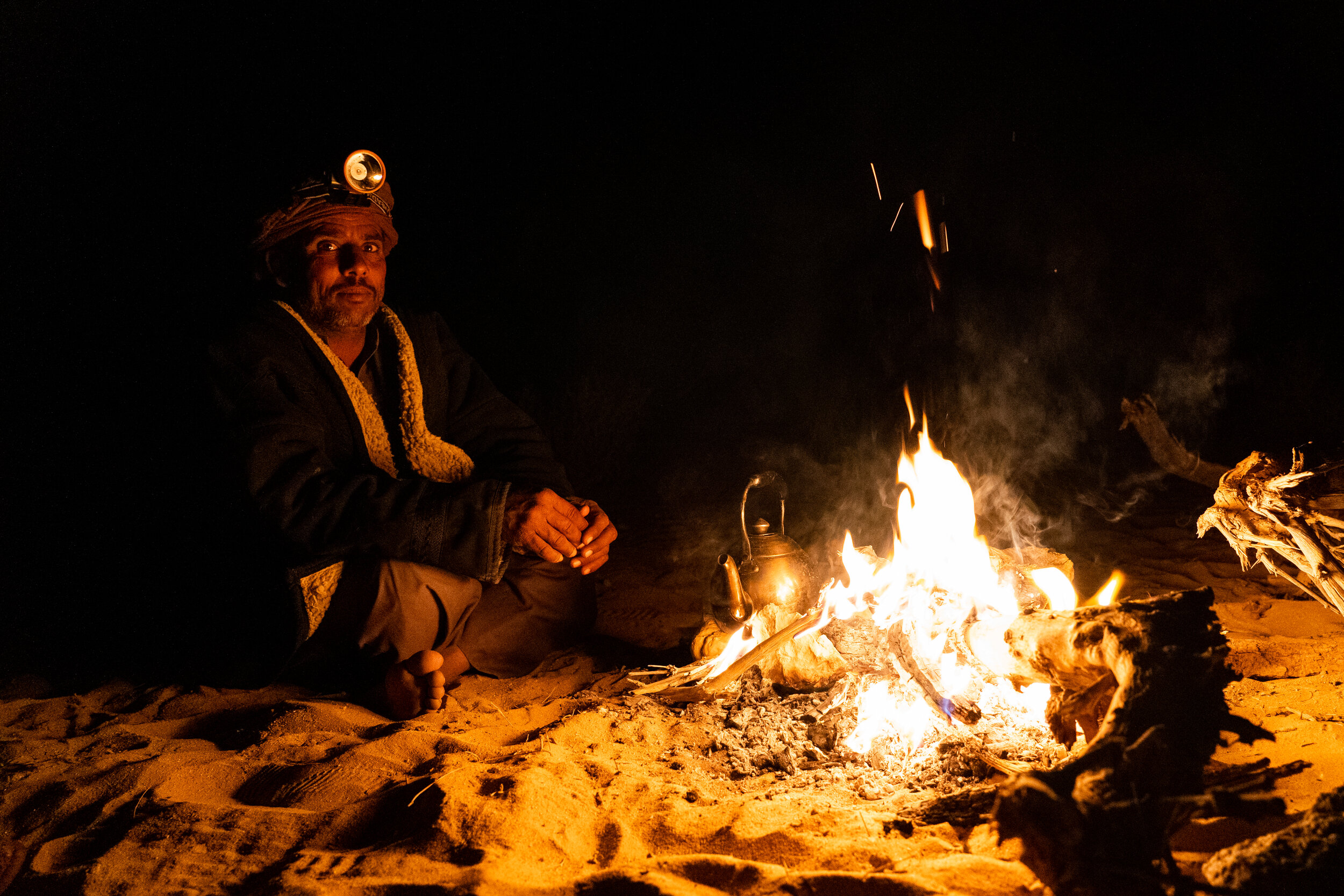
BEDOUINS OF THE
EMPTY QUARTER
The Mehri People Who Inhabit Yemen’s Empty Quarter Desert
Rub’ al Khali, Yemen
The Rub’ al Khali or “Empty Quarter” as it is known in English, is Arabia’s largest, most unforgiving, and most desolate desert. Stretching thousands of kilometres between four countries in the Arabian Peninsula, very few people live in this region. For those not working in the oil fields, life has changed little over the last several hundred years. Camels, fire, family, goats, tribal traditions and Islam dominate life for the few Bedouin of the Empty Quarter.
The ethnic Mehri Bedouin live in the desert along the border between Yemen, Oman and Saudi Arabia, raising camels and goats. They stick to their tribal traditions, speak Mehri, a rare South Arabian language, and follow ancient land claims. These people know the desert better than anyone I’ve ever met. Life is not easy out here, but after living with the people here, I have learnt to appreciate the solace of the desert and the comfort of family.
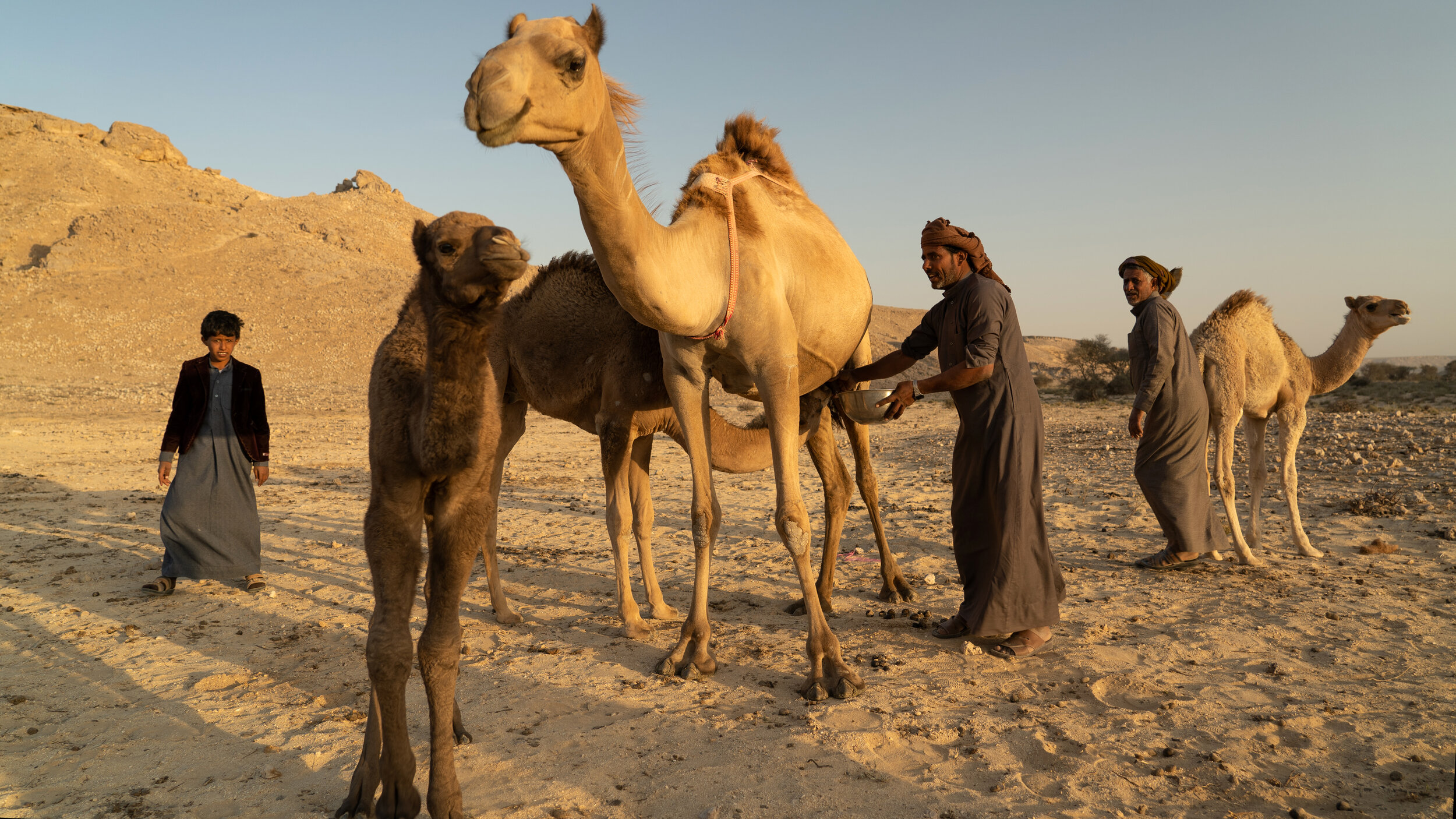
Herding Camels in the Empty Quarter
Empty Quarter Desert, Al Mahrah, Yemen. February 2020.
The ethnic Mehri Bedouins live in a border region between eastern Yemen and western Oman. Traditionally nomadic, they raise camels in the scrubby southern fringes of the Empty Quarter Desert. These days, most Mehri have houses in one of the few scattered settlements in the desert, where the women, children, and goats live, while the men go out to tend to the camels. Camel milk and meat forms a major part of the diet here, and the camels are milked daily at sunset.
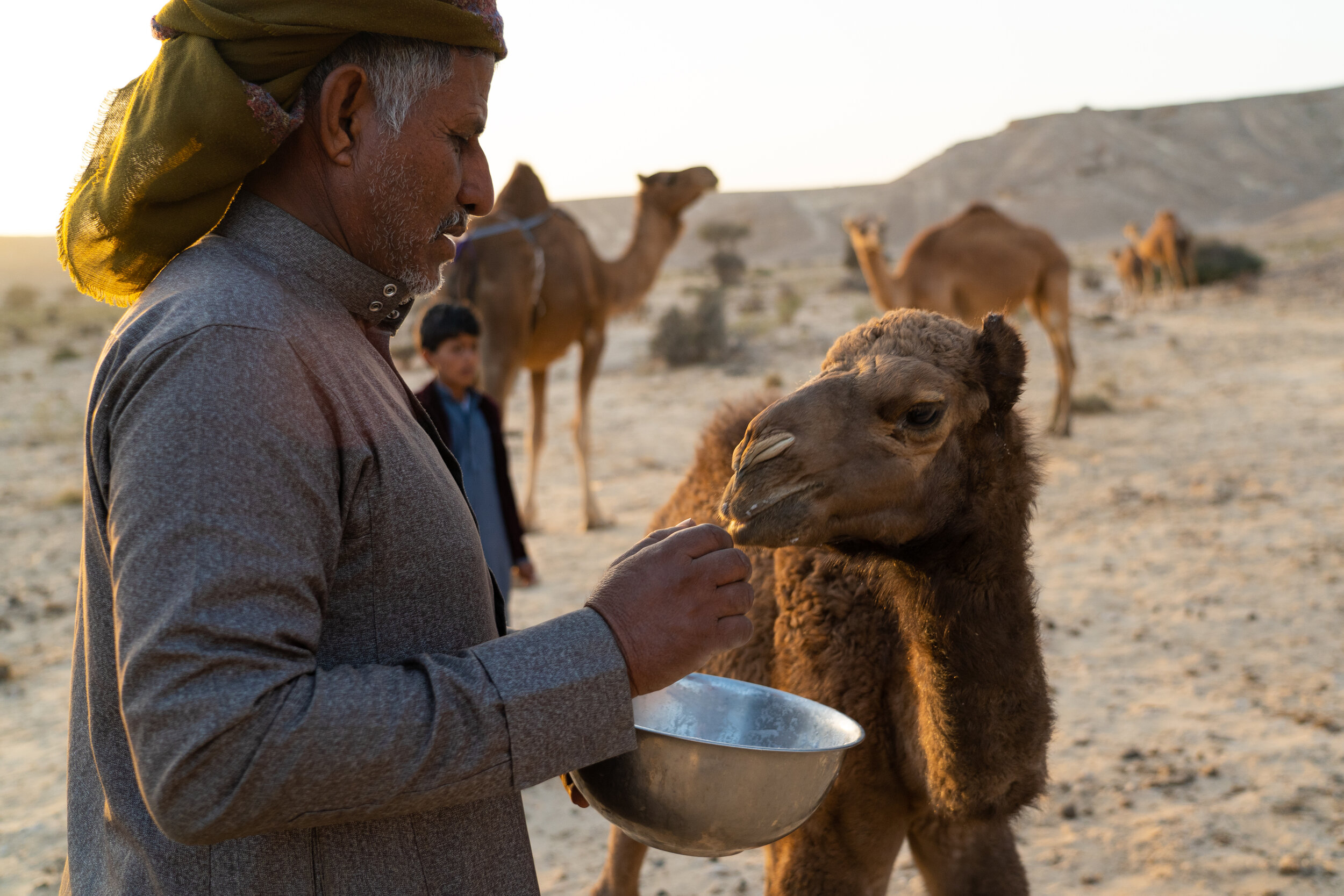
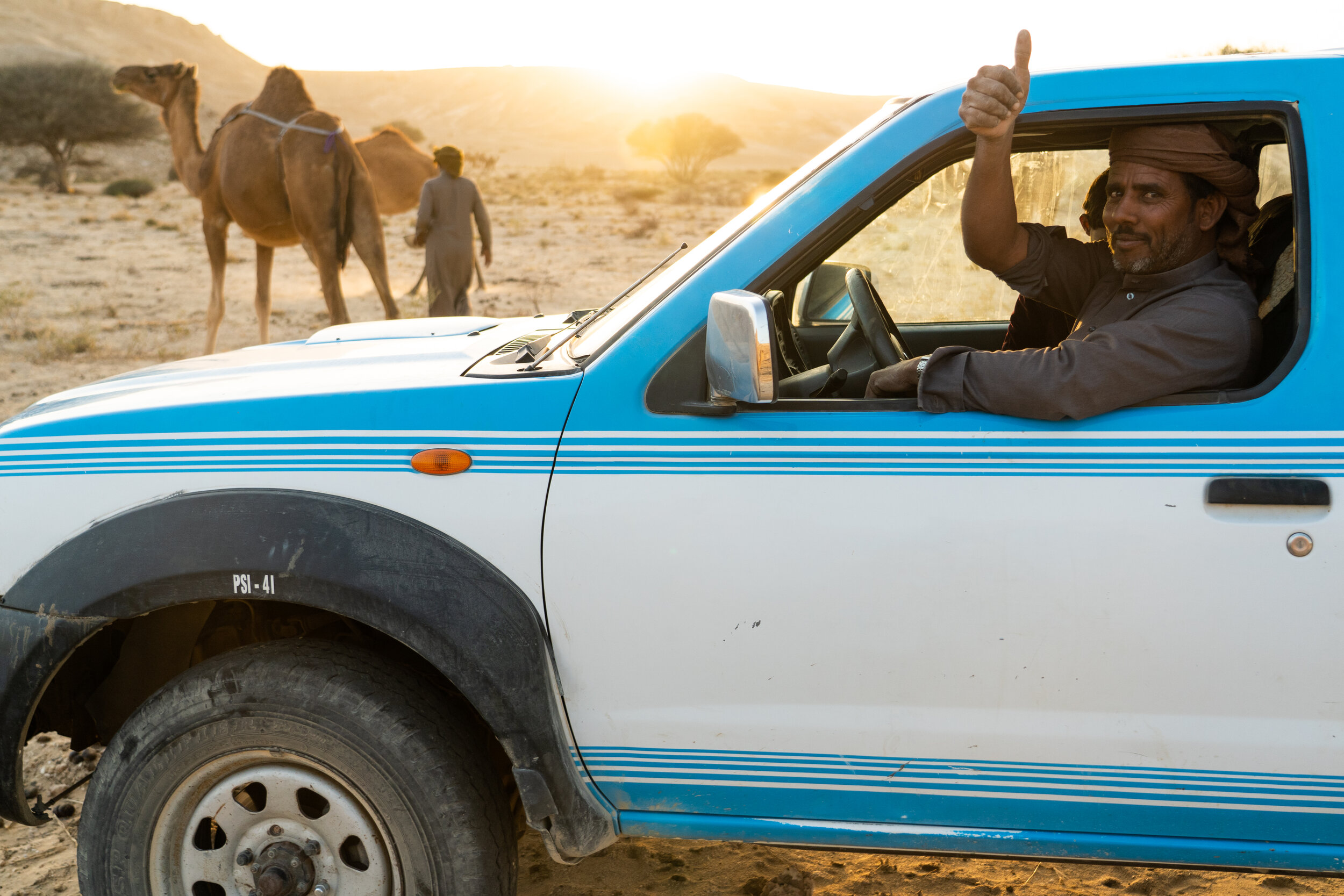
Water and Milk
Empty Quarter Desert, Al Mahrah, Yemen. February 2020.
Living out in the empty quarter requires understanding the value of water and milk. One of the greatest changes out here from perhaps a hundred years ago is the pick-up truck. Bedouins use these vehicles to transport themselves and massive canisters of freshwater around the scrubby desert. Water is the lifeblood of anywhere, and in a desert, water scarcity could mean death. Having pick-up trucks allows families to move large quantities of water, this allowing them to graze their camels far away from wells. Camel milk, with all its nutrients and fats, forms an essential part of the diet out there.
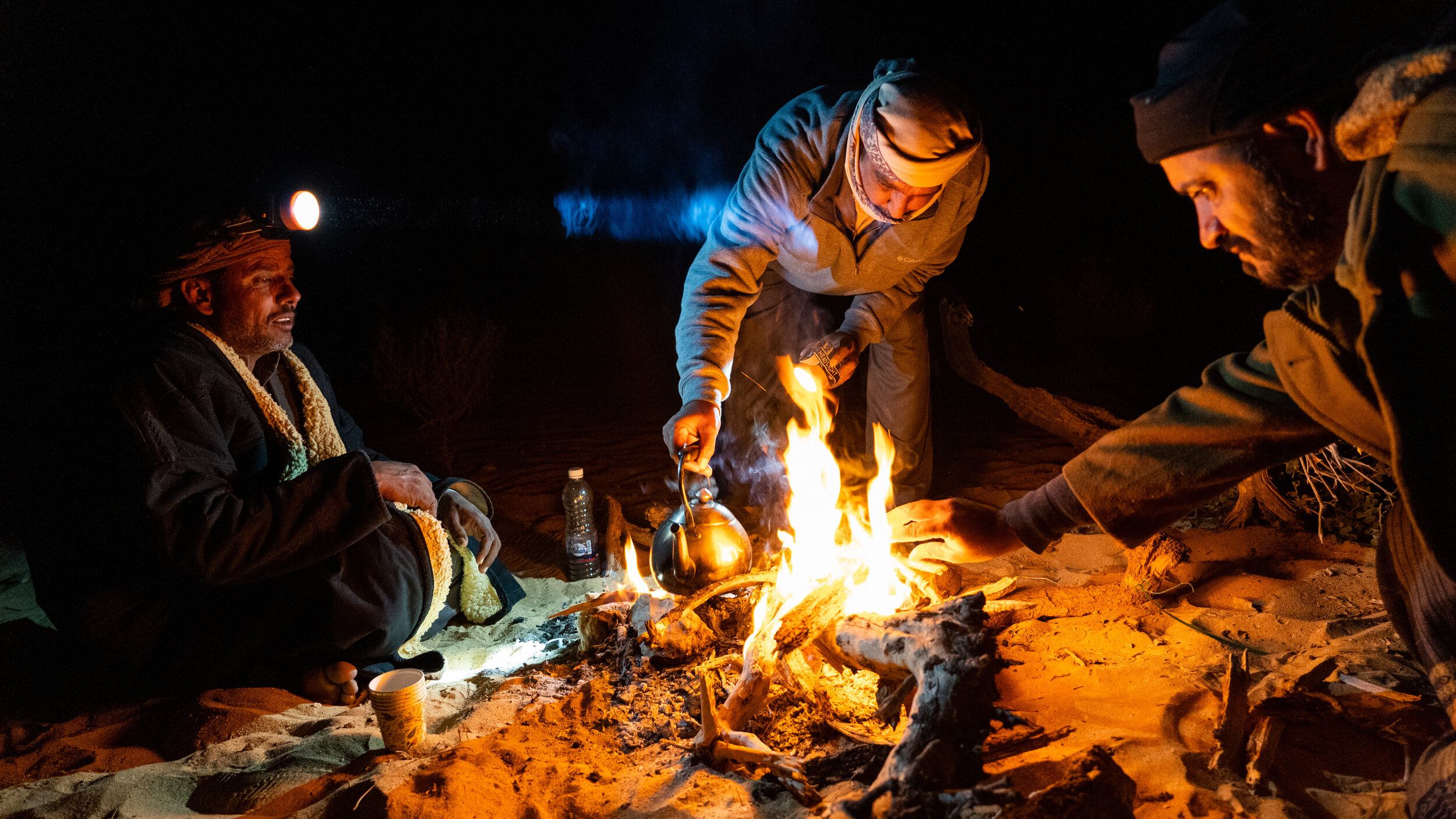
Desert Fire
Empty Quarter Desert, Al Mahrah, Yemen. February 2020.
Fire is the lifeblood of existence in the lonely desert. Bedouin people who have made the desert their home for millennia understand the power and need for fire. Tea, made in the fire, is served to honoured guests. Fire is used for roasting their food. Fire keeps them warm during desert nights, when the sun disappears and the bone-chilling cold sets in. Much time is dedicated to finding and gathering scrub brush for firewood.
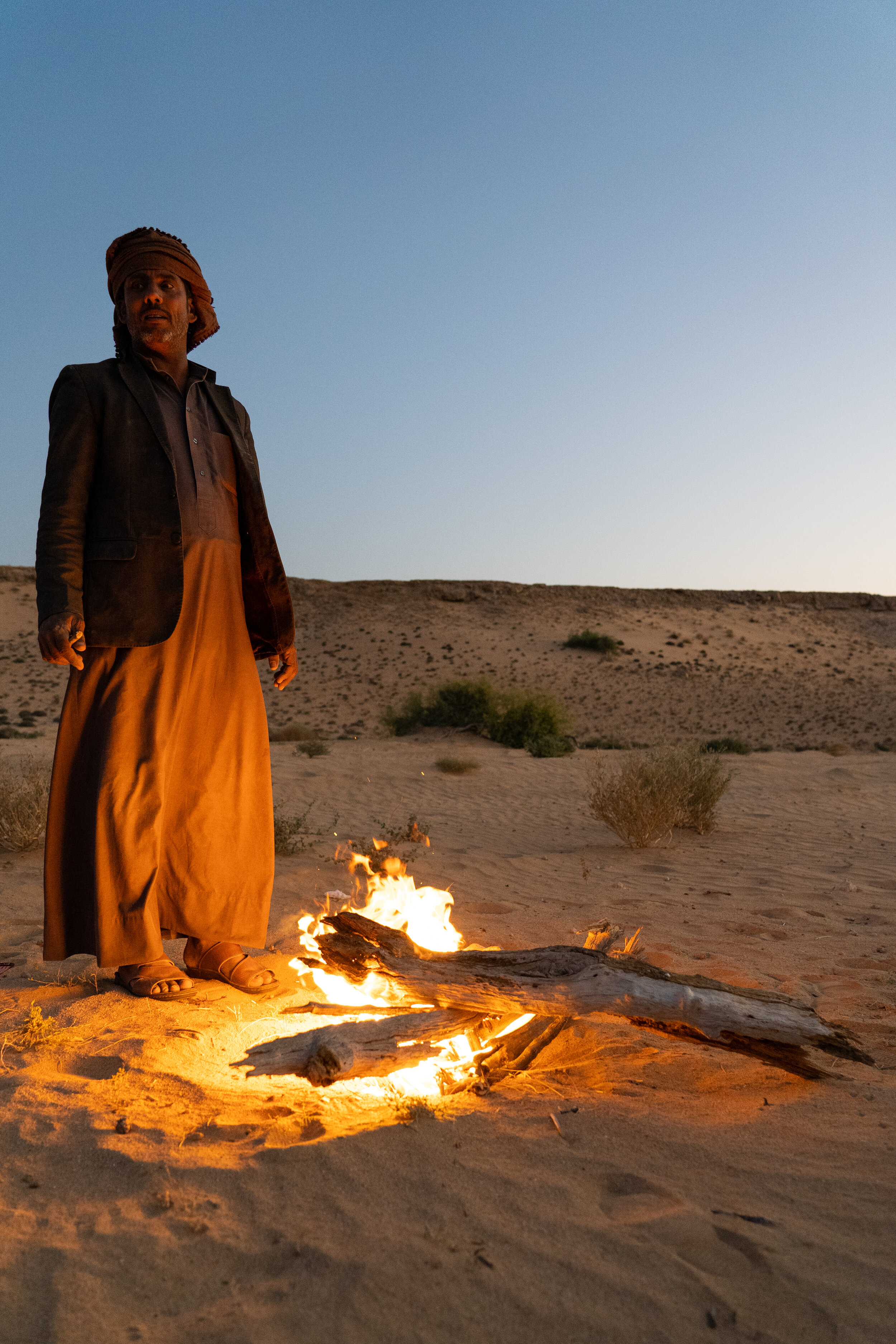
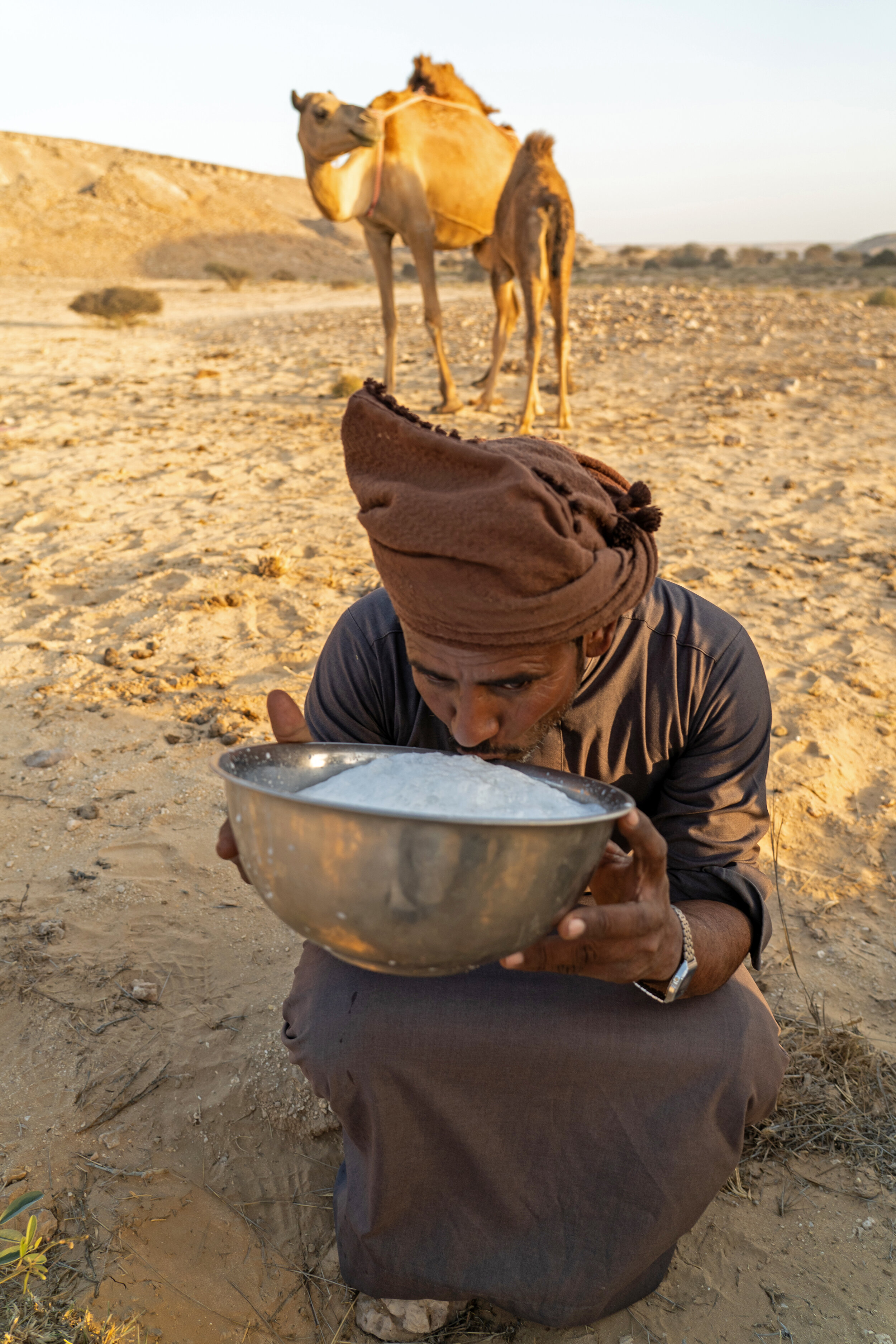
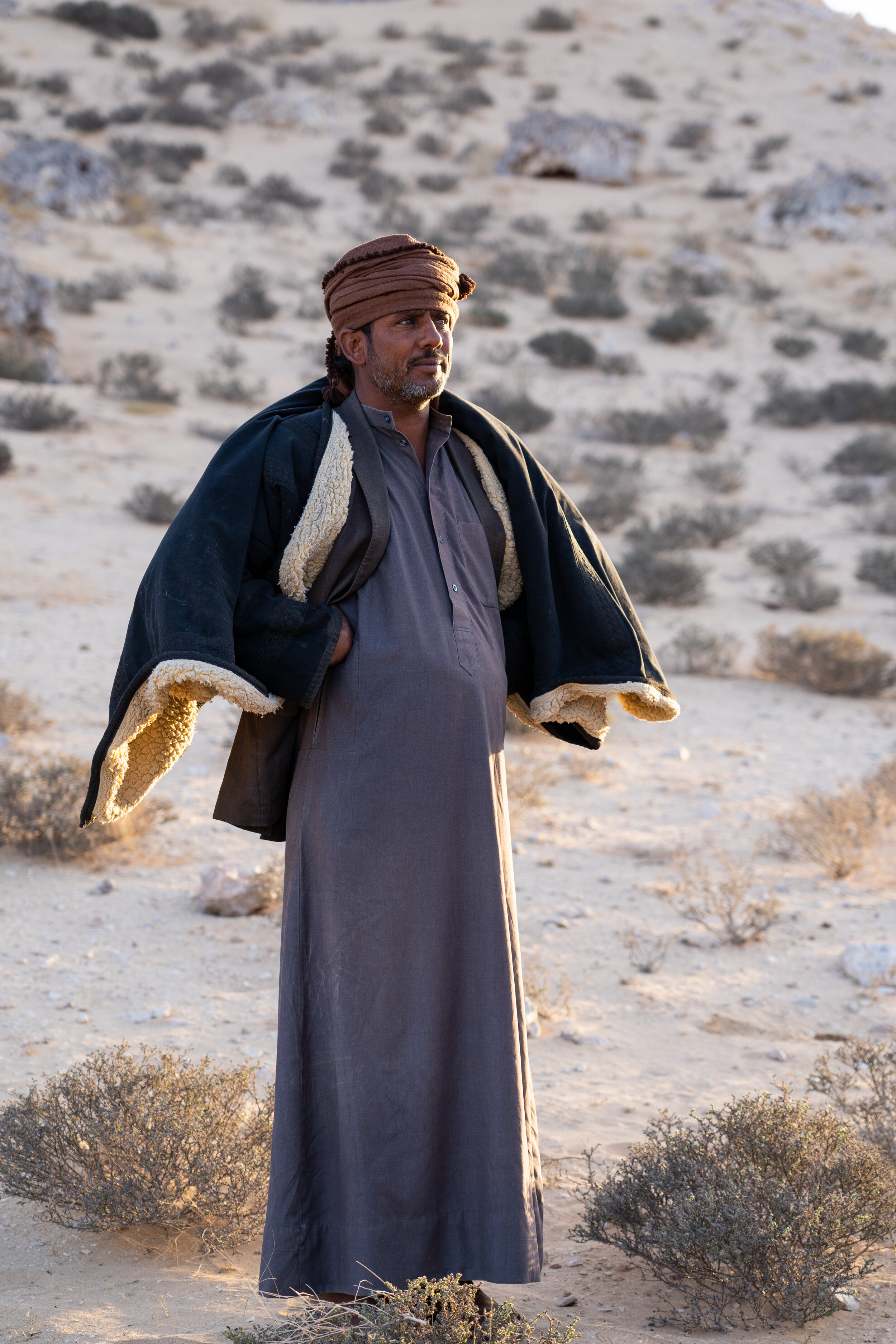
A Man’s Life in the Yemeni Desert
Empty Quarter Desert, Al Mahrah, Yemen. February 2020.
Living with the elements, ebbs and flows of the desert means hot and sunny days, cold nights, and a oneness with the quiet solitude of mother Earth. Living here means living off the land, mostly anyway. The Mehri bedouin men of the desert drink camel milk, eat camel and goat meat, collect scrub brush for their fires, boil water that they keep in the back of their pick up trucks in gigantic blue containers, and set up their wool tents near their camel herds.
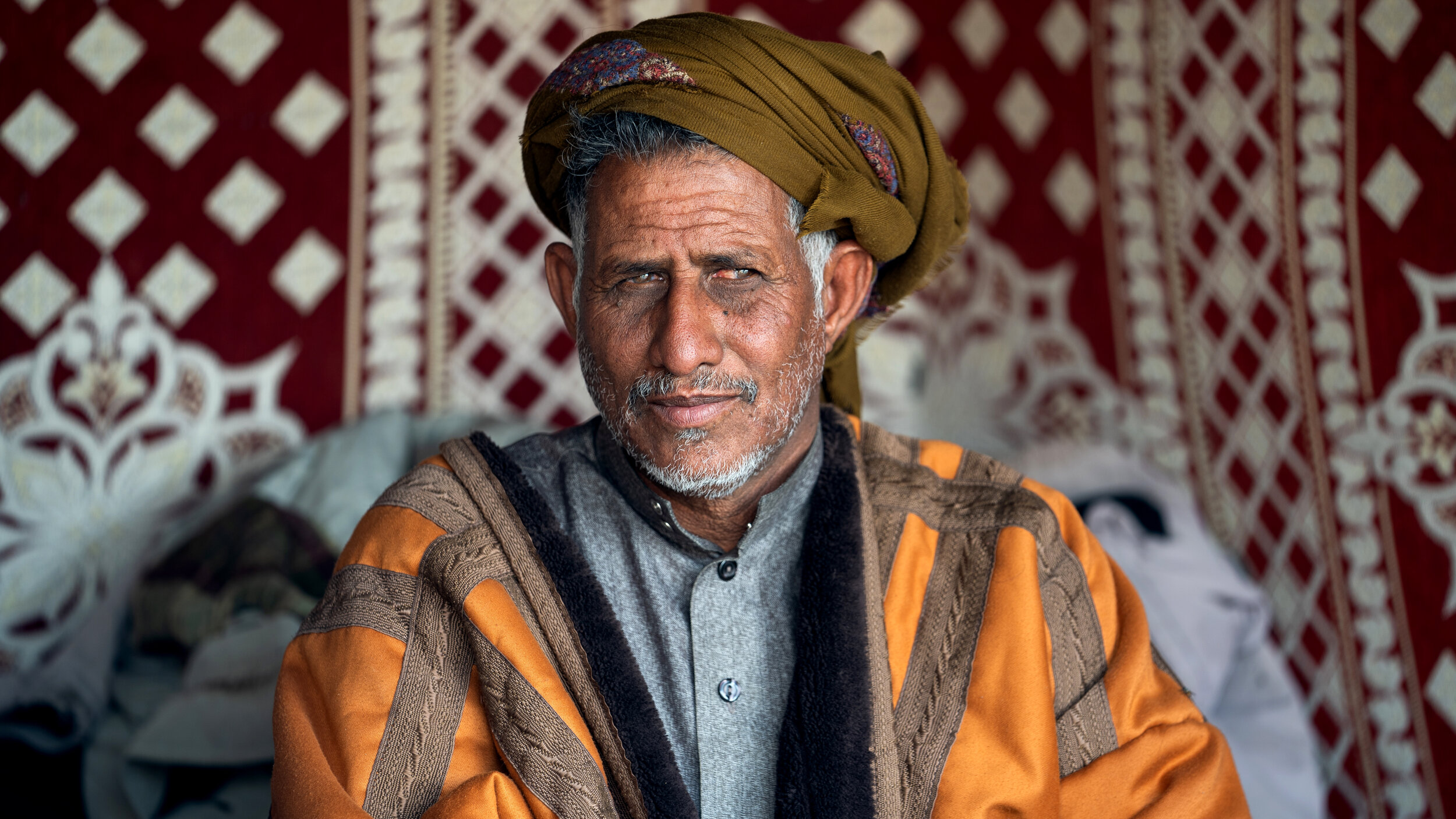
The Patriarch
Empty Quarter Desert, Al Mahrah, Yemen. February 2020.
Mehri Bedouin life is very traditional and conservative. During my time in the region, I was only really able t interact with the men and children. Women stay in the village at the family compound. Even when I was invited to spend a night at this family’s home, I was only able to hear the women, but not see them. The home itself was segregated into a men’s section and a women’s section, and the patriarch moved freely between the two. The family members prayed five times a day, waking up very early for morning prayers. This family does not use Arabic to communicate, rather, they speak in Mehri, a South Arabian language native to Al Mahrah and Dhofar in the southern Arabian Peninsula.
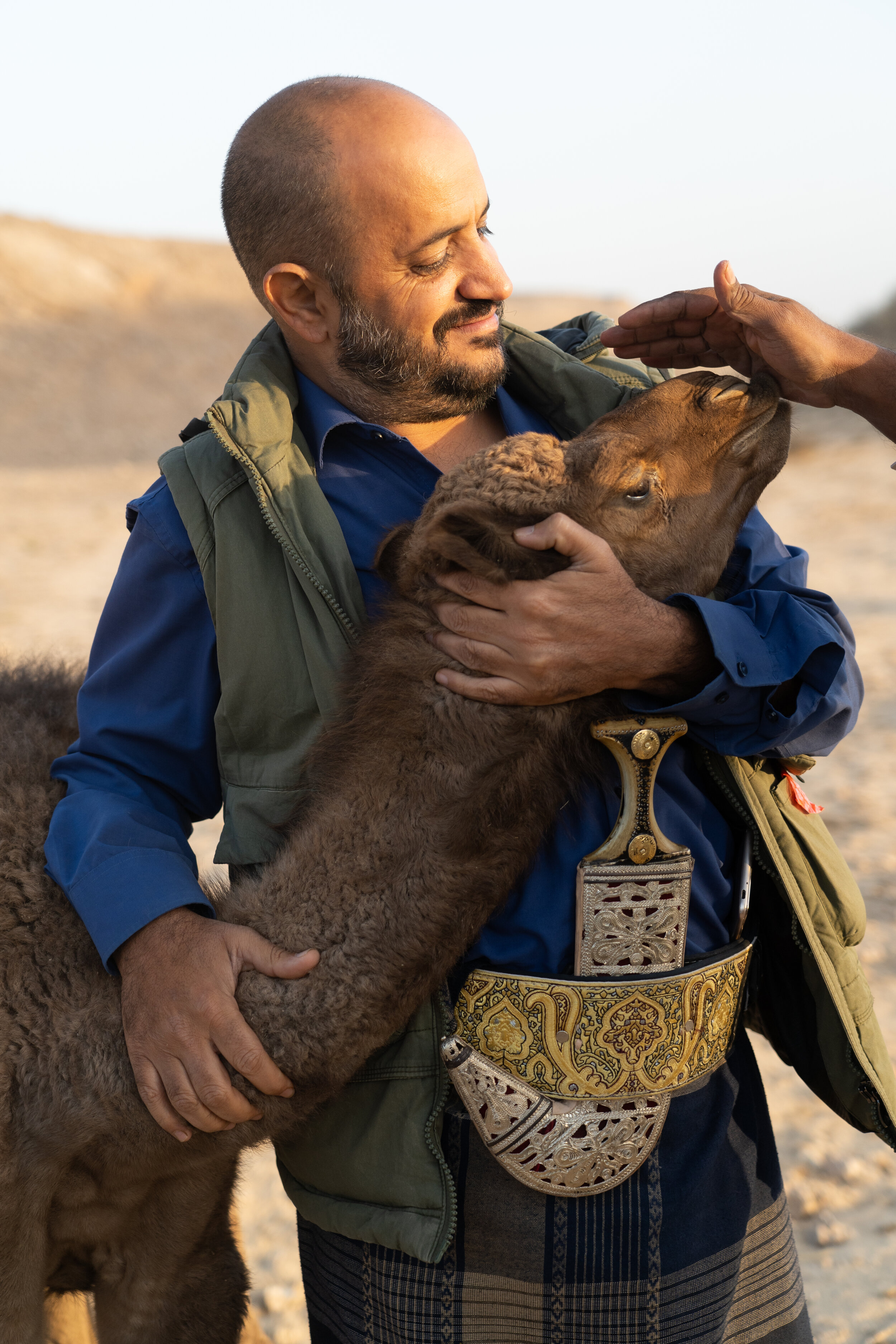
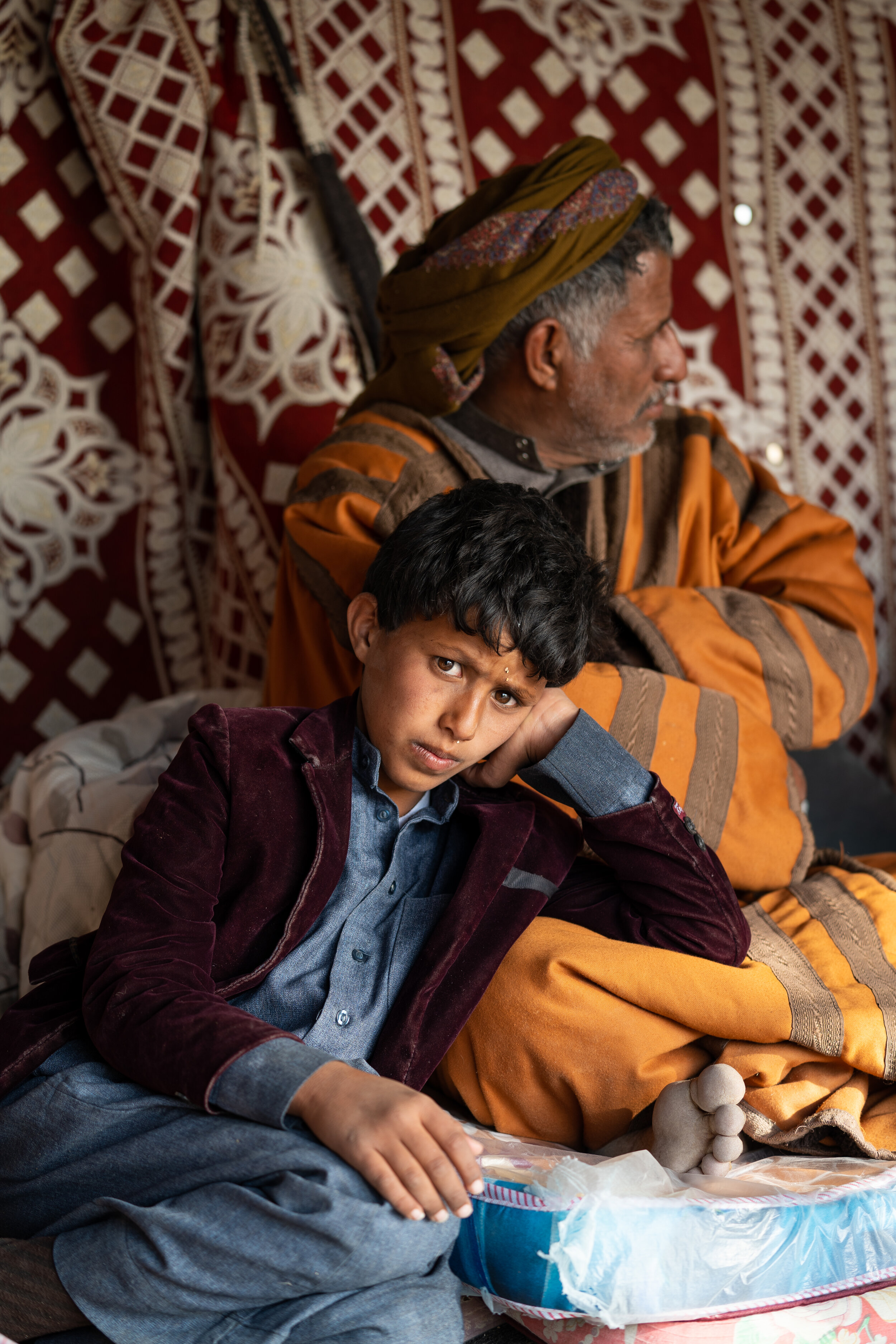
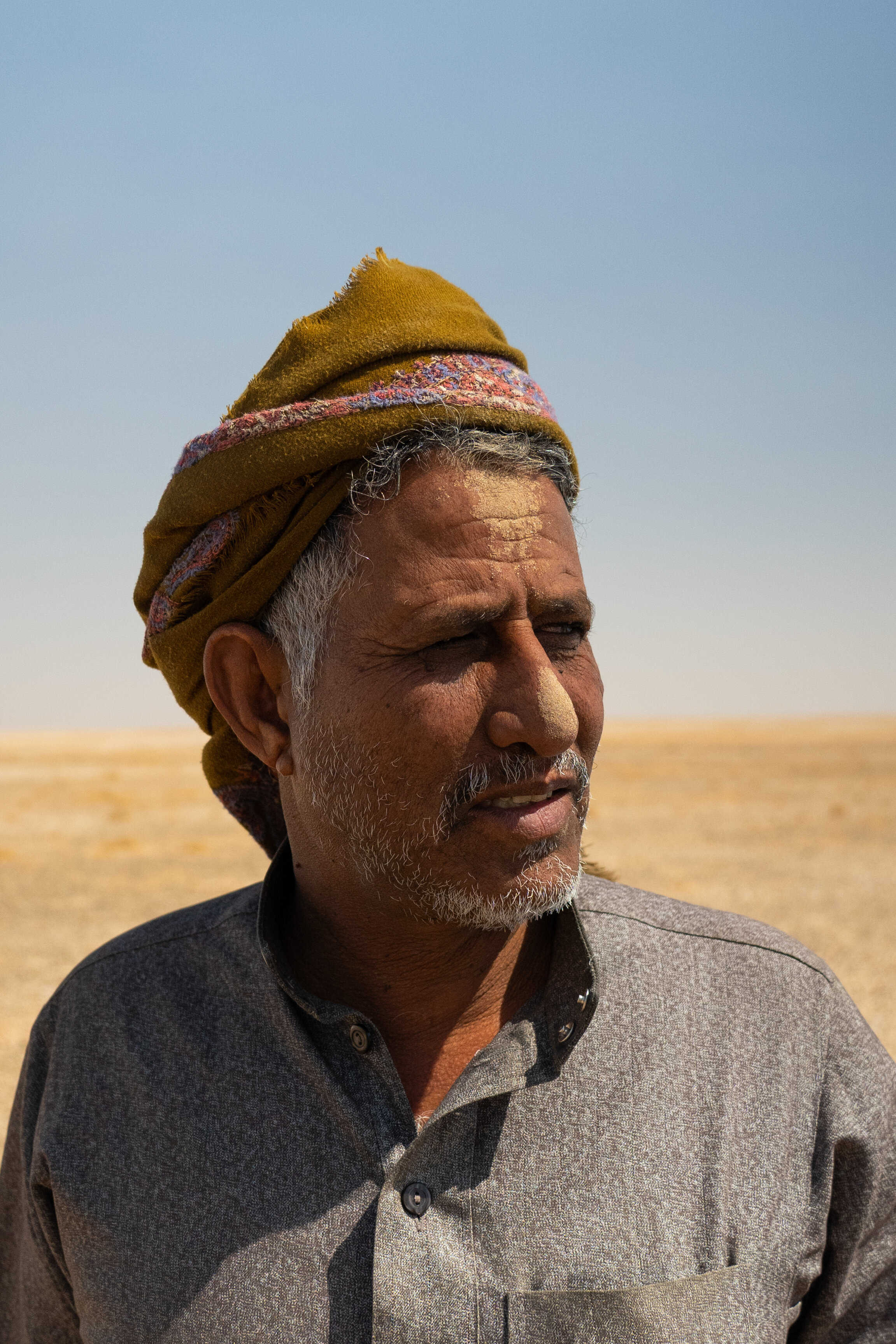
Boy’s Duties
Empty Quarter Desert, Al Mahrah, Yemen. February 2020.
Men and women lead very separate lives in the Empty Quarter Desert in Yemen. From a young age, boys are expected to accompany their fathers, brothers and uncles in the desert, to help with herding and milking the camels. There is a lot of downtime out there, and in many ways, time feels like it passes slowly. When not dealing with the camels, the men prepare tea, snacks to eat, lounge in their wool and cloth tents, and pray.
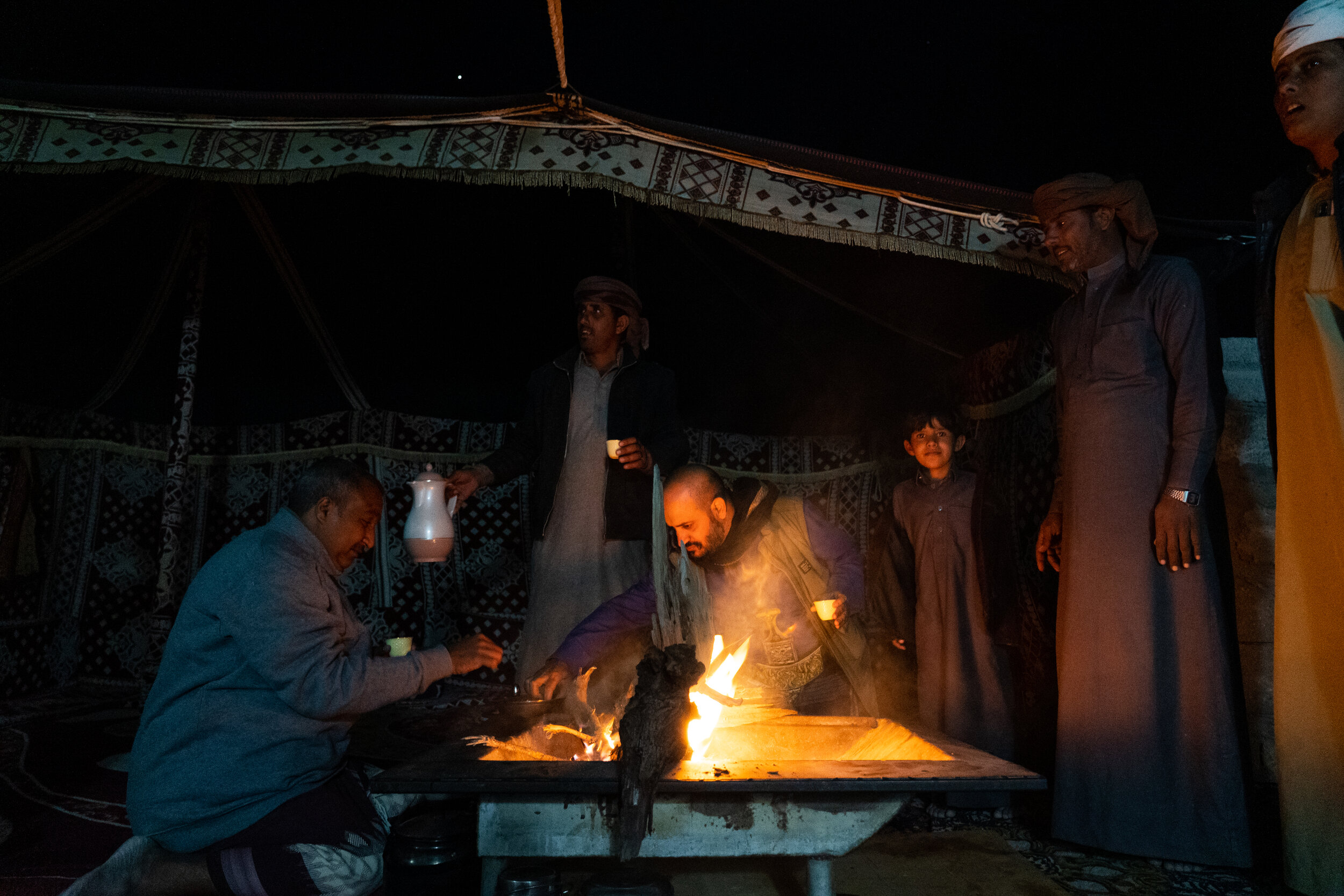
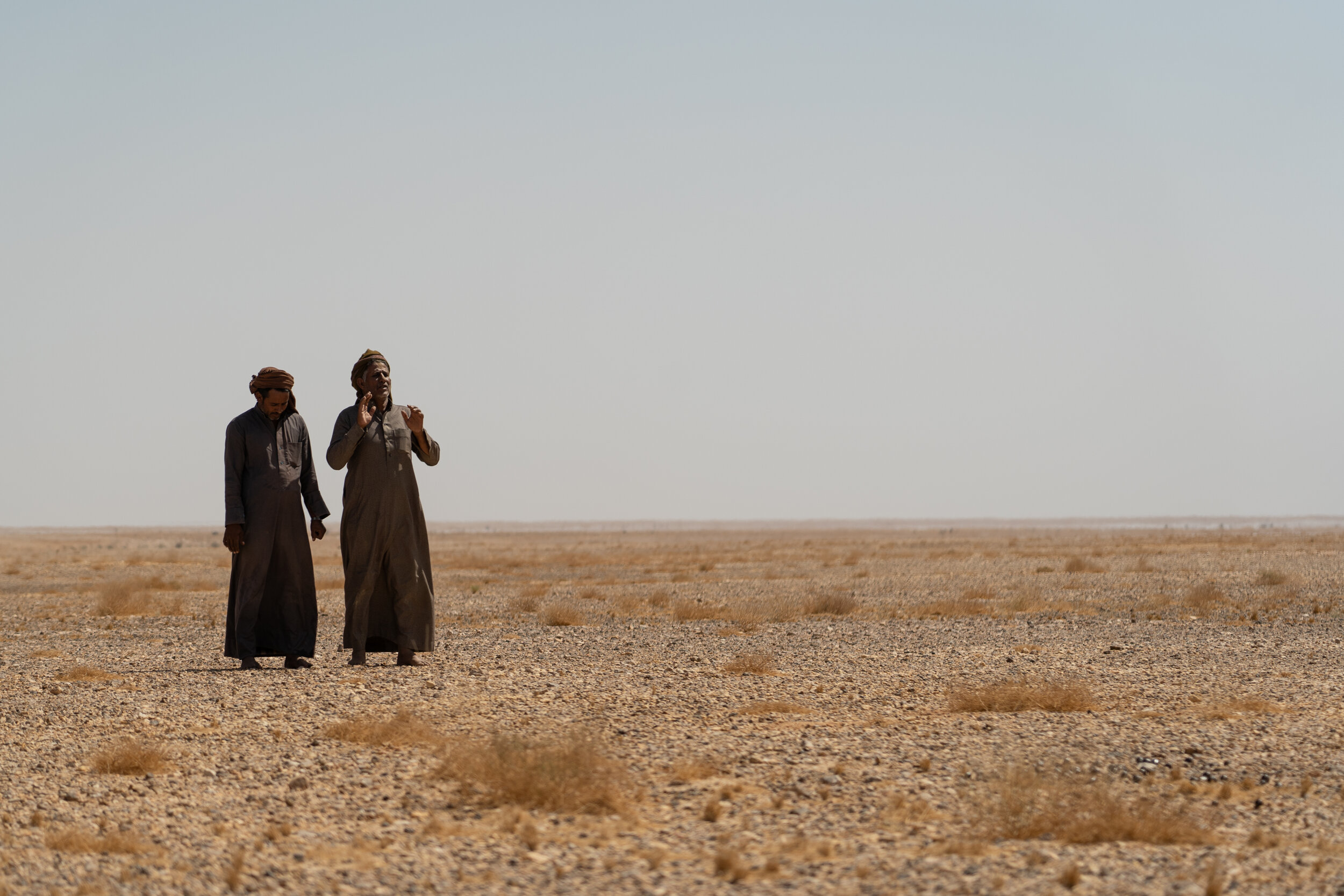
Bedouin Hospitality
Empty Quarter Desert, Al Mahrah, Yemen. February 2020.
The Mehri Bedouins are conservative Sunni Muslims. During my time in the desert, I observed my hosts praying five times daily without missing a beat. Islam is an ingrained part of existence in the desert, forming an integral part of the Mehri Bedouin culture.
With this conservative Islamic culture, also comes hospitality towards guests, who are showered with tea, snacks, food, a privileged seat and a warm place to sleep. Guests and hospitality play an important role in Islam, as evidenced by this Hadith Muslim as narrated by al-Bukhaari: “So my beloved, know that the guest is the way to Paradise. The Prophet said, ‘Whoever believes in Allah and the Last Day must be generous with his guest.’“
